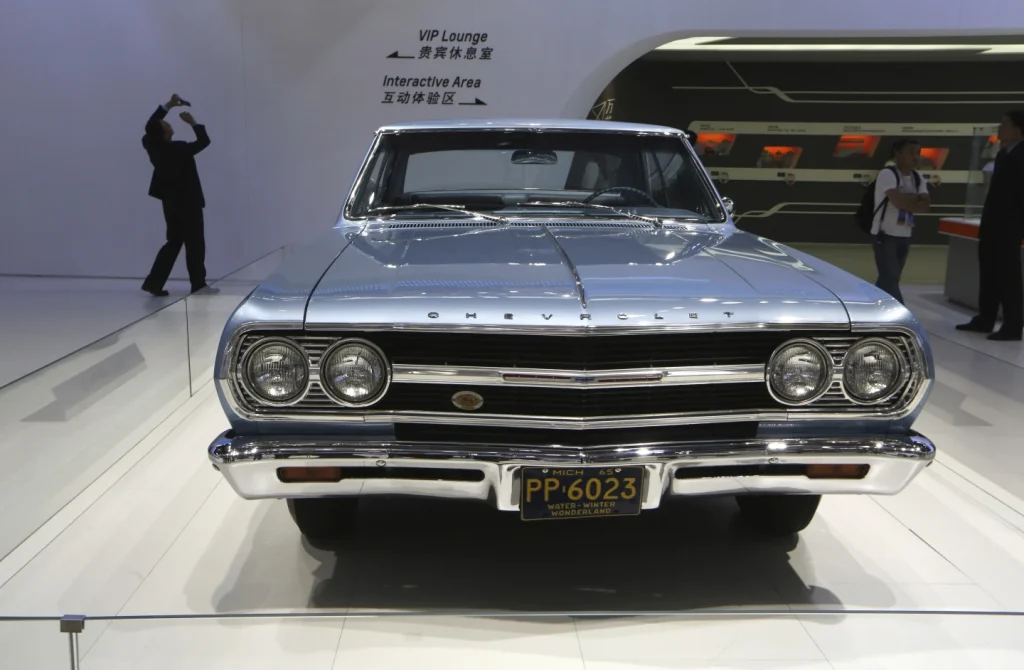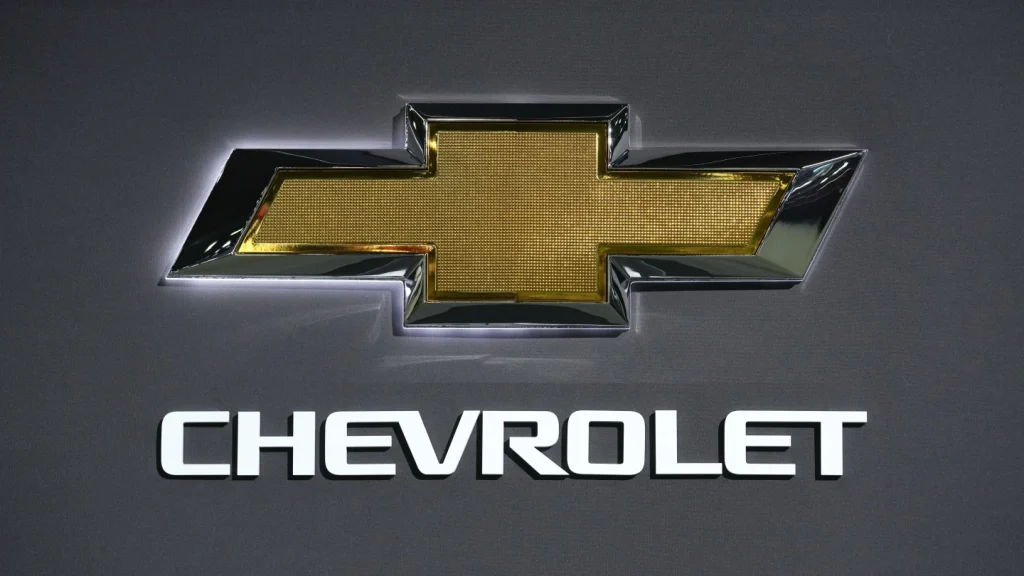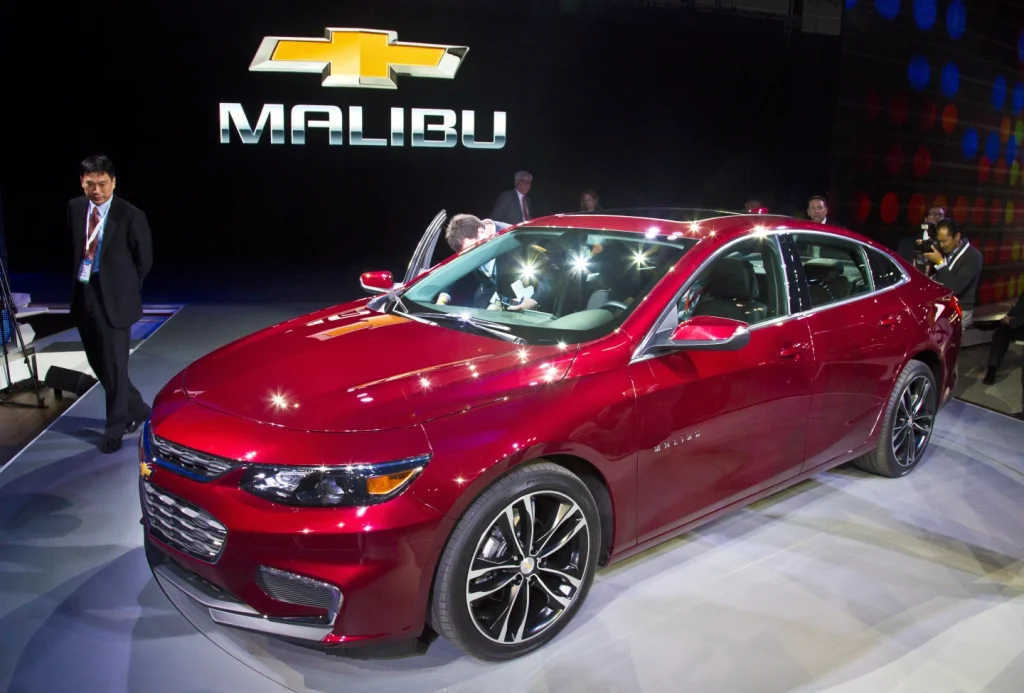The discontinuation of the Chevrolet Malibu marks a significant moment in the automotive industry, signaling the end of an era for midsize cars produced by Detroit automakers.
General Motors’ decision to cease production of the Malibu, a vehicle with a rich history dating back to its introduction in 1964, underscores the shifting priorities within the automotive landscape towards electric vehicles.
Once a mainstay in family garages across the nation, the midsize sedan segment, to which the Malibu belonged, has experienced a steady decline in sales since the early 2000s.
This decline can be attributed to the increasing popularity of SUVs and pickup trucks among American consumers. Today, SUVs and trucks dominate the U.S. auto market, with full-size pickups from manufacturers like Ford, Chevrolet, and Ram reigning as the top-selling vehicles.
Even the top-selling non-pickup vehicle, Toyota’s RAV4 small SUV, exemplifies the trend towards larger, more versatile vehicles.
Statistics from Motorintelligence.com reveal the stark contrast in the midsize car segment’s performance over the years. While midsize cars accounted for 22% of new vehicle sales in 2007, that figure has dwindled to a mere 8% in recent years.
Despite this overall decline, Americans still purchased 1.3 million midsize cars in the past year, with popular models such as the Toyota Camry and Honda Accord leading the segment.
General Motors’ sales figures for the Malibu paint a picture of its dwindling popularity in the market. With just over 130,000 units sold in the previous year, representing an 8.5% decline from the year before, the Malibu struggled to compete against its SUV and truck counterparts.
While a redesign in 2016 briefly boosted sales to nearly 230,000 units, a significant portion of these sales were made at lower profit margins to rental car companies, highlighting the challenges faced by midsize sedans in a market increasingly favoring larger vehicles.
The discontinuation of the Chevrolet Malibu serves as a poignant reminder of the evolving preferences of American consumers and the automotive industry’s shift towards electric vehicles and larger, more versatile models.
As the last midsize car produced by a Detroit automaker bows out, it marks the end of an era while paving the way for a future driven by innovation and sustainability in the automotive sector.
The midsize car segment, often overshadowed by the popularity of SUVs and trucks in recent years, experienced a notable resurgence in the past year, with sales showing a nearly 5% increase.
This upward trend in sales is particularly exemplified by General Motors’ (GM) success with its Malibu model, which has seen over 10 million units sold across nine generations since its initial introduction.
GM’s manufacturing facility located in Kansas City, Kansas has been a key production site for the Malibu as well as the Cadillac XT4 small SUV.

However, in a strategic move, GM has announced plans to cease Malibu production at the plant in November, followed by the discontinuation of XT4 production in January.
This decision is part of a larger $390 million retooling initiative aimed at transitioning the facility to produce a new iteration of the Chevrolet Bolt small electric car.
By late 2025, the Kansas City plant is set to commence production of the Bolt and XT4 models on a shared assembly line.
This operational adjustment is designed to enhance the plant’s agility in responding to evolving customer preferences and market dynamics, as emphasized by GM.
The consolidation of production lines is expected to streamline manufacturing processes and optimize resource utilization, ultimately bolstering the plant’s competitiveness and adaptability in an ever-changing automotive landscape.
The Wall Street Journal recently reported on the impending discontinuation of the Malibu, signaling a significant shift in GM’s product portfolio and production strategy.
As the automotive industry continues to undergo rapid transformations driven by technological advancements, shifting consumer preferences, and sustainability imperatives, GM’s strategic realignment of its manufacturing operations underscores the company’s commitment to innovation, efficiency, and future readiness.
The resurgence of the midsize car segment, often overshadowed by the dominance of SUVs and trucks in recent years, has been a notable trend in the automotive industry.
Sales in this segment have shown a nearly 5% increase, indicating a shift in consumer preferences and market dynamics.
General Motors (GM) has been a key player in this resurgence, particularly with its Malibu model, which has enjoyed significant success with over 10 million units sold across nine generations since its inception.
GM’s manufacturing facility in Kansas City, Kansas has played a crucial role in producing the Malibu as well as the Cadillac XT4 small SUV.
However, in a strategic move, GM has announced plans to halt Malibu production at the plant in November, followed by the discontinuation of XT4 production in January.
This decision is part of a broader $390 million retooling initiative aimed at transforming the facility to manufacture a new version of the Chevrolet Bolt small electric car.
By late 2025, the Kansas City plant is scheduled to begin producing the Bolt and XT4 models on a shared assembly line.
This operational adjustment is intended to improve the plant’s flexibility in responding to changing customer preferences and market trends, as highlighted by GM.
The consolidation of production lines is expected to streamline manufacturing processes, enhance resource utilization, and strengthen the plant’s competitiveness and adaptability in an evolving automotive landscape.
A recent report by The Wall Street Journal on the impending discontinuation of the Malibu signals a significant shift in GM’s product portfolio and production strategy.
As the automotive industry undergoes rapid transformations driven by technological advancements, evolving consumer preferences, and sustainability concerns, GM’s strategic realignment of its manufacturing operations underscores the company’s dedication to innovation, efficiency, and future preparedness.

In summary, the evolution of the midsize car segment, exemplified by GM’s Malibu, mirrors the dynamic nature of the automotive industry and the necessity for manufacturers to adapt to changing market conditions.
The retooling of the Kansas City plant and the transition to electric vehicle production highlight GM’s forward-thinking approach and commitment to leading the way in automotive innovation.
As the industry continues to evolve, GM’s strategic choices demonstrate the company’s resilience, vision, and ability to transform in a rapidly changing automotive landscape.
